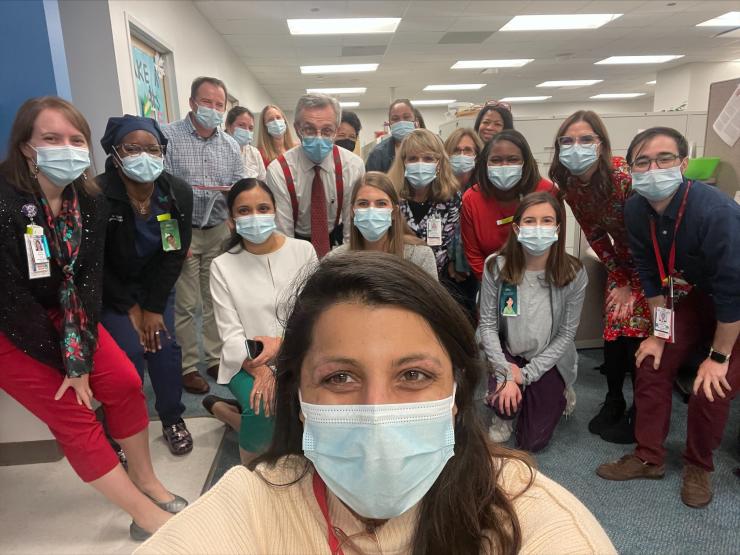BCM-TMC program awarded $2.3 million grant to support training efforts

The Baylor College of Medicine-Texas Medical Center Leadership Education in Adolescent Health (BCM-TMC LEAH) training program has been awarded a five-year grant totaling $2.3 million to support the goal of preparing diverse leaders in adolescent and young adult health through didactic, experiential and research-based interdisciplinary education and training in core health disciplines of medicine, nursing, nutrition, psychology, social work and public health.
It is one of seven such training programs funded by the Health Resources and Services Administration and the Maternal and Child Health Bureau. The LEAH program is the premier federally funded training program for preparing the next generation of healthcare professionals to become leaders in adolescent and young adult care.
“Adolescents make up about 20% of the U.S. population yet account for disproportionate rates of mortality from accidents, homicides, suicide and other conditions related to mental illness,” said Dr. Albert C. Hergenroeder, professor and chief of the division of adolescent medicine and sports medicine and project director for BCM-TMC LEAH. “The goal is to train and prepare healthcare professionals to assume leadership roles in the development and improvement of the system of care for adolescents and young adults locally, in Texas, in HRSA Region 6 (Oklahoma, New Mexico, Arkansas and Louisiana) and nationally.”
Dr. Connie Wiemann, director of research in the division of adolescent medicine and sports medicine, based at Texas Children’s Hospital, is co-director of the program, which is a collaboration with Dr. Diane Santa-Maria, dean and associate professor in the Department of Research at the University of Texas Health Science Center at Houston Cizik School of Nursing; Dr. Christine Markham, chair of health promotion and behavioral sciences and deputy director for the Texas Prevention Research Center at University of Texas Health Science Center at Houston School of Public Health; Dr. Sarah Norendorf, associate professor and associate dean for research and faculty development; and Shelley Gonzales, clinical assistant professor and assistant director of field education at the University of Houston Graduate College of Social Work.
Since some of the issues facing adolescents and young adults are complex, for example, mental health, medical, nutritional and behavioral problems, Hergenroeder says the interdisciplinary approach used within the LEAH training program is a great model for addressing adolescent and young adult health issues where there is unlikely to be a simple solution.
“There has been an increased urgency during the last few years of the need to address adolescent health problems, such as suicide, eating disorders and violence in adolescents,” Hergenroeder said. “These problems require solutions for populations as well as individuals.
For example, an individual patient with an eating disorder will require treatment with an interdisciplinary team of physicians, psychologists, nurses, dietitians and social workers yet for a population, the expertise of researchers and public health experts should look at what broader interventions might be used in the prevention of eating disorders. LEAH is designed to give comprehensive training in all aspects of the threats to adolescent and young adult health in the U.S.”
Pre- and postdoctoral students, medicine fellows and residents in the program work with faculty in a multitude of related specialized fields. They then go into communities prepared to focus on the emotional, behavioral and physical problems adolescents and young adults are facing. This program goes beyond just physical and mental health to teach healthcare professionals how to identify ways to improve access to care and incorporate technology into healthcare to best suit this group.
“The comprehensive training experience also includes a focus on skills to conduct and disseminate research to promote practices and policies that impact adolescents and young adults in a variety of settings. All trainees will learn tools to engage stakeholders and identify opportunities to improve systems of care. In this way, all disciplines play an important role in improving the health and well-being of this population. And healthcare administrative training is incorporated into the LEAH program so that LEAH trainees will be able to successfully execute great research, clinical, teaching and advocacy programs to improve adolescent and young adult health,” said Wiemann.
This is the fourth time BCM has been awarded a LEAH training grant since 1997.










